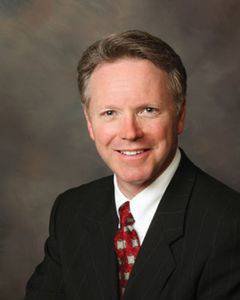As we end fall semester 2013, I am often inspired by the growth I witness in our students in such a short time.
New first-year students arrived on campus just weeks ago, but they are now feeling a sense of comfort and beginning to understand what Bethel is all about. They are starting to grasp what it means to be a Thresher and why alumni hold the values and traditions of this institution so near and dear.
One of those values, that seems to be represented in the Bethel graduates we have met, is pursuit of lifelong learning. I believe that to be the result of our distinctive educational ethos.
In the pages of this magazine, you will read about Bethel students who were inspired to continue their research, faculty who continue to expand their knowledge base to better serve our students, and individuals who continue to pursue interests and passions—all of which exhibit the well-lived life, perhaps the primary goal of the liberal arts experience.
At Bethel, we are committed to continuing to pursue our core business. As an institution of higher education, it’s obvious that “education” is our core business and “creating a broader community of lifelong learners” is our objective.
I am proud of the work our people do and proud of the passion our graduates take with them into their lives. I am proud of Bethel’s ability to pursue its core business imbued with our distinctive set of core values.
Many of you have heard me beat this drum before: Often the only messages from the media related to higher education concern jobs and job training. Don’t get me wrong—preparing graduates to obtain jobs is important, and we must continue to deliver the appropriate content to do so. However, I believe that what we do at a college like Bethel must be broader than simply helping a student get a job.
At a conference I recently attended, Earl Lewis from the Andrew Mellon Foundation said: “Skill development is not the same as education. We are not preparing students for their first job but for their sixth and seventh careers.” We must be intentional in our efforts to produce graduates who have a foundation of knowledge that enables them to adapt to an ever-changing environment, rather than those who are equipped simply to perform a specific task.
In the last issue of Context, I mentioned some of the ways our faculty stay current on the use of technology in higher education, such as through utilization of MOOCs, flipped classrooms or any number of the delivery methods one might read about in current publications. I am pleased that in this issue, you will read about a sampling of ways faculty are using this technology, and its place on a residential campus.
At the same conference referenced above, Daniel Greenstein from the Bill and Melinda Gates Foundation stated: “Technology has a role to play in the personalized attention given to students—it augments the relationship.” While it is important to know that our faculty remain current on the best ways to use technology in their teaching, it is even more essential to recognize that relationships and mentoring are still central to the educational experience at Bethel College.
In our 2010 inaugural address, we stated that the obligation of higher education is to nurture hope—both in individuals and in society. Lately so many of my conversations have centered around “the need for purpose.”
To me, our hope resides in a sense of purpose. Clearly the purpose of places like Bethel College is to help our students find their purpose and to outfit them with the tools to achieve it.
In these pages, you find examples of lifelong learners—individuals who clearly continue to pursue their purpose in life. In such stories I, personally, find hope.

